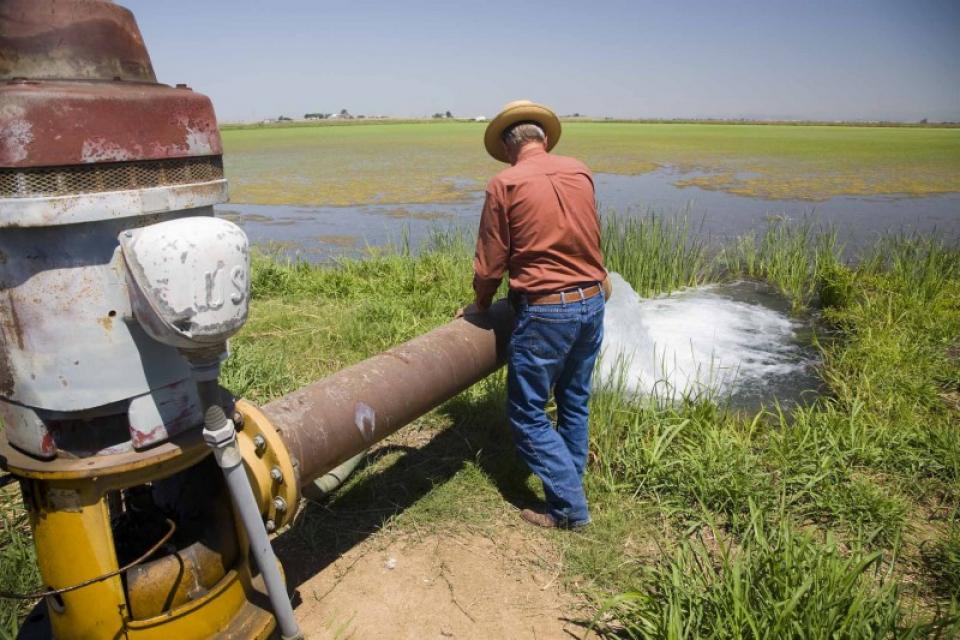

Landowners in California are entitled to pump and use a reasonable amount of groundwater from a basin underlying their land. When there is insufficient water to meet demand, property owners are expected to extract the safe yield—the rate at which groundwater can be withdrawn without causing long-term decline of water levels.
If the amount of groundwater withdrawn exceeds the safe yield amounts, the well can go dry.
Safe yield is generally considered equal to the average replenishment rate of the aquifer from natural and artificial recharge. Evaporation, transpiration and basin outflow are also factored in to replenishment rates.
If water users do not follow the principle of safe yield, groundwater users can ask the court to adjudicate and define the rights to use groundwater [see also Conjunctive Use].
The court can limit pumping to the safe yield of the underground basin. Through adjudication, the courts can assign specific water rights to water users and can compel the cooperation of pumpers who might otherwise refuse to limit their pumping. Watermasters can also be appointed by the court to ensure that pumping conforms to the limits defined by the adjudication.
Safe yield litigation typically centers on the amount of historical production in the groundwater basin, the boundaries of the basin, and the basin’s hydrology and geography.
Through this process, the courts have adjudicated 22 groundwater basins in California. The Seaside Basin near the Monterey Peninsula, for example, was adjudicated after annual pumping was in excess of safe yield and posed a risk for seawater intrusion.
Generally, most safe yield disputes take place in Southern California because of its limited number of aquifers.
Multiple legal doctrines have been used to adjudicate groundwater rights. One commonly used doctrine is prescription, unique to California. After five years of continuous overdraft, extractions in excess of safe yield), pumpers can “prescribe” or seize the rights of another water user by showing that they have been adversely using the other’s water “notoriously and openly.”